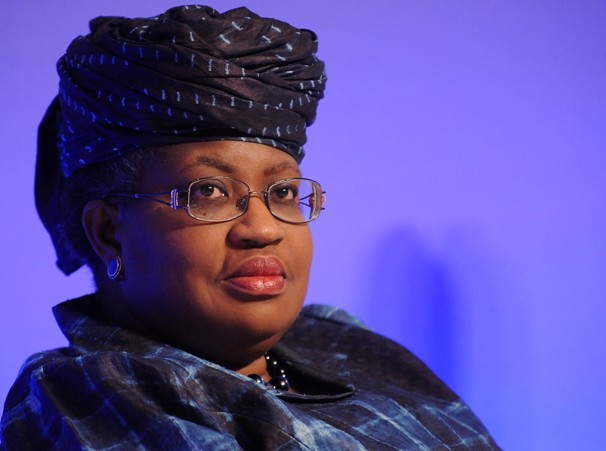Nigeria’s Minister of Finance, Ngozi Okonjo-Iweala, in the company of key economic stakeholders, said the government will cut expenses by public servants, create tax on luxury goods and refocus efforts on non-oil sectors as measure to cushion the effect of falling oil prices.
Nigerians, from ordinary citizens to economic analysts, have long called on successive Nigerian governments to cut unnecessary and frivolous spending, and most importantly to reduce the dependence on oil revenue. Last week, Ventures Africa advised the Nigerian government to prune unnecessary overheads and trim bloated allowances, plug corruption loopholes in governance and improve tax remittance in order to free up critical funds needed to whether this storm.
The Nigerian government seems to have taken that advice.
Okonjo-Iweala described the serious challenges posed by the fall in oil prices as an opportunity for the country to refocus efforts towards the non-oil sectors in preparation for a future with less oil revenue. For now, she said the measures to cushion the impact of the oil revenue drop will include Nigerians paying tax on luxury goods, a reduction in public expenditures and international travels by public servants. Measure that she says will help to ensure that the “common man” did not feel the impact of the revenue decline.
“We are not talking about (cutting) salaries and benefits”, Okonjo-Iweala stressed. “We are talking of trainings and travels and these will be only for critical and essential items which will be pre-approved by the Head of Service and the Director-General of the Budget Office and then if someone invites you for overseas course, you can go provided they pay for your training and your stay and you have to furnish evidence that they are paying before you will be allowed”.
Another short term solution, the minister said, is the drawdown of some government agencies. “We found that a lot of these agencies are underpinned by law and we discussed with the National Assembly and they are willing to look at how their laws can be repealed. So this is also part of our medium term measures.”
And lowering the 2015 budget benchmark. Okonjo-Iweala, who had campaigned unsuccessfully for an oil price lower than the original $78 benchmark for 2015, seems to have been vindicated by the crash of oil prices. “As part of the response, the Medium Term Expenditure Framework and the Budget 2015 proposal to the National Assembly have been revised,” she said. “Government is now proposing a benchmark of $73 dollars per barrel to the National Assembly compared to the earlier proposed benchmark of $78”.
But it is the long-term solutions to the dip in oil revenue that has got Nigerians most excited. Prudent government spending, diversification of the economy and tax on the rich have widely welcomed, albeit with a tinge scepticism.
@NOIweala We need a drastic cut on the remuneration of Ministers and National Assembly members. NASS does not need N150b to function.
— CSJ (@censoj) November 17, 2014
@NOIweala shout for increased non-oil revenue has become political statement, usually made by govt when oil prices fall. We are listening
“That (the measures) is a good start,” renowned Nigerian economist Bismark Rewane told national paper, Punch. “The most important thing is the fact that the government has come to accept that it has to do something with respect to the falling oil prices. What we are seeing now is not a short-term phenomenon. Whether the therapy is adequate is another issue. But I think it is a good move and it has not ruled out other moves”.
Many Nigerians also doubt that the government will sincerely do as it has said. They point to the several obvious extravagance by government officials that need to be stopped. Okonjo-Iweala however says the government is ready to and able to make the necessary and wise decisions to better the lives of Nigerian despite the challenge.








